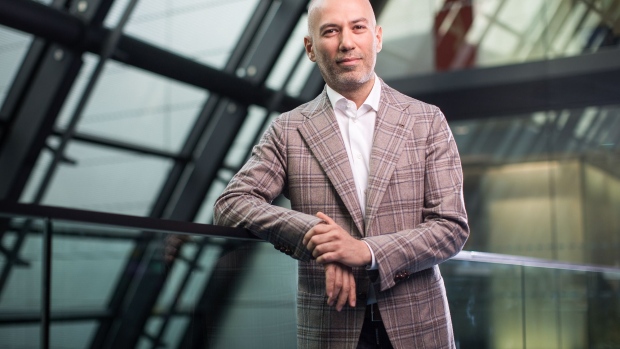Sep 30, 2022
EV Startup Arrival in Talks on Funds to Unlock US Market
, Bloomberg News

(Bloomberg) -- Electric-vehicle startup Arrival SA surged after it said it’s in talks to raise capital to build and sell its products in the US.
The company, which is primarily UK-based, also said it’s a step closer to operating so-called microfactories to produce battery-powered vans. The shares pared an early gain of as much as 17% on Friday to trade up 7.9% to 85 cents as of 9:42 a.m. in New York.
Arrival said it reached a key milestone Thursday with a first production verification vehicle completed at its Bicester facility. Denis Sverdlov, founder and chief executive officer, says the step proves that the microfactory concept -- which uses autonomous robots instead of a production line -- works.
The next step for Arrival is the US, where President Joe Biden’s Inflation Reduction Act offers massive rebates on electric vans. To cash in on an expected surge of demand, Sverdlov says Arrival plans to build multiple microfactories in the US. However, it needs to raise capital for that -- Sverdlov estimates the cost of a plant at $50 million, with a further $50 million needed for working capital.
Arrival declined to comment on how much capital it was seeking. It has multiple avenues, including loans under the US government’s Advanced Technology Vehicles Manufacturing Loan Program, strategic partnerships, and licensing its intellectual property, said Avinash Rugoobur, Arrival’s president.
Read more: EV Startup Out to Beat Google Gets Stuck at the Starting Line
Sverdlov said he wasn’t concerned about interest dropping off due to recent economic uncertainty across the world. Demand is many times more than supply, with few to no competitors in the large van space, he said.
Arrival has an order from United Parcel Service Inc. to supply 10,000 vans, and Rugoobur said the company will begin road tests with UPS in London shortly.
The company, which listed via a reverse merger with a special purpose acquisition company, has seen its shares plunge about 88% this year.
The stock is trading near an all-time low, yet Sverdlov says he doesn’t regret taking the company public.
“I will not say we regret this because we raised $1.4 billion from the public markets,” he said. “Raising that through the private markets at that time was almost impossible.”
(Updates with shares in second paragraph.)
©2022 Bloomberg L.P.





